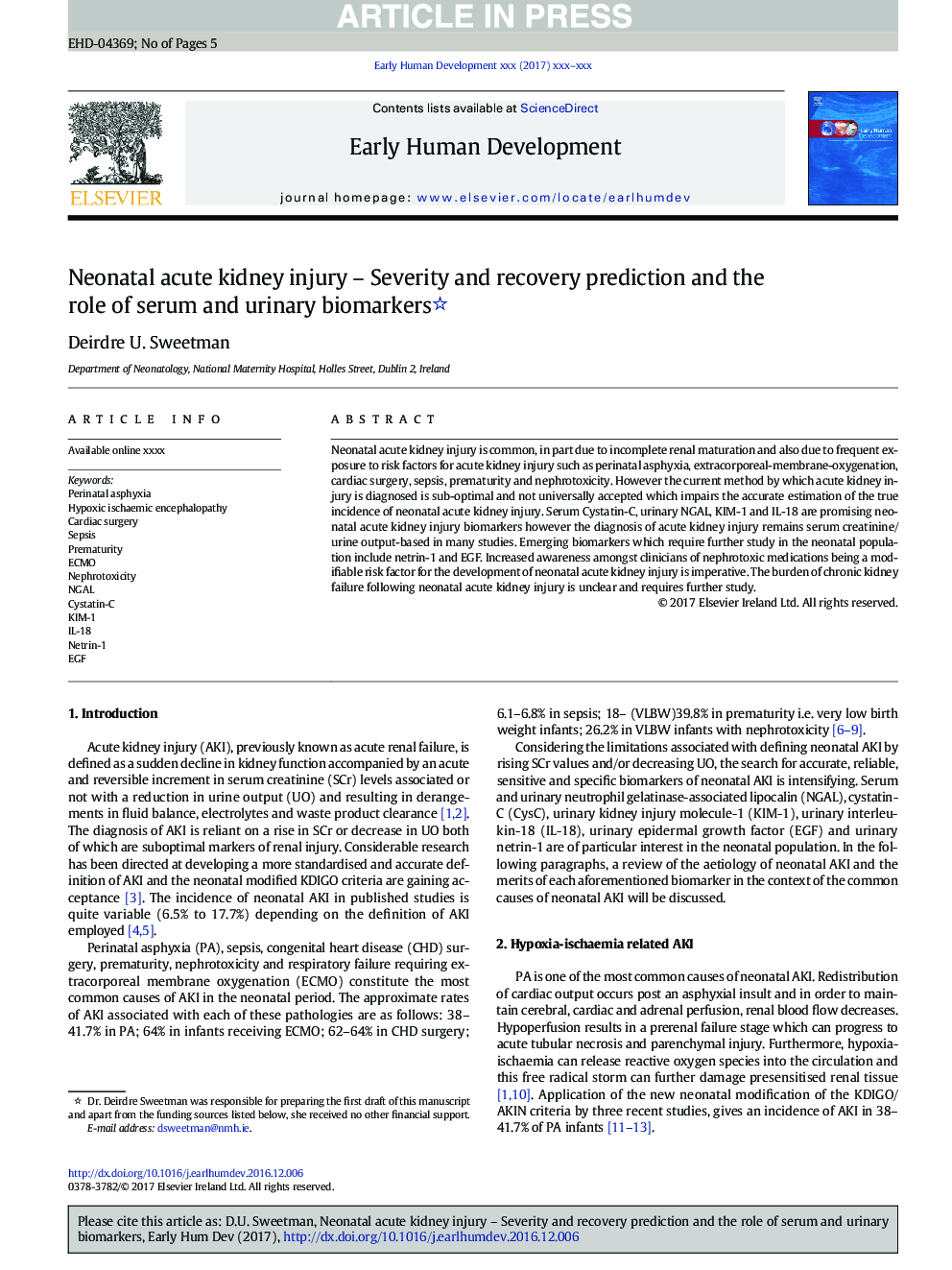| Article ID | Journal | Published Year | Pages | File Type |
|---|---|---|---|---|
| 5691320 | Early Human Development | 2017 | 5 Pages |
Abstract
Neonatal acute kidney injury is common, in part due to incomplete renal maturation and also due to frequent exposure to risk factors for acute kidney injury such as perinatal asphyxia, extracorporeal-membrane-oxygenation, cardiac surgery, sepsis, prematurity and nephrotoxicity. However the current method by which acute kidney injury is diagnosed is sub-optimal and not universally accepted which impairs the accurate estimation of the true incidence of neonatal acute kidney injury. Serum Cystatin-C, urinary NGAL, KIM-1 and IL-18 are promising neonatal acute kidney injury biomarkers however the diagnosis of acute kidney injury remains serum creatinine/urine output-based in many studies. Emerging biomarkers which require further study in the neonatal population include netrin-1 and EGF. Increased awareness amongst clinicians of nephrotoxic medications being a modifiable risk factor for the development of neonatal acute kidney injury is imperative. The burden of chronic kidney failure following neonatal acute kidney injury is unclear and requires further study.
Keywords
Related Topics
Health Sciences
Medicine and Dentistry
Obstetrics, Gynecology and Women's Health
Authors
Deirdre U. Sweetman,
